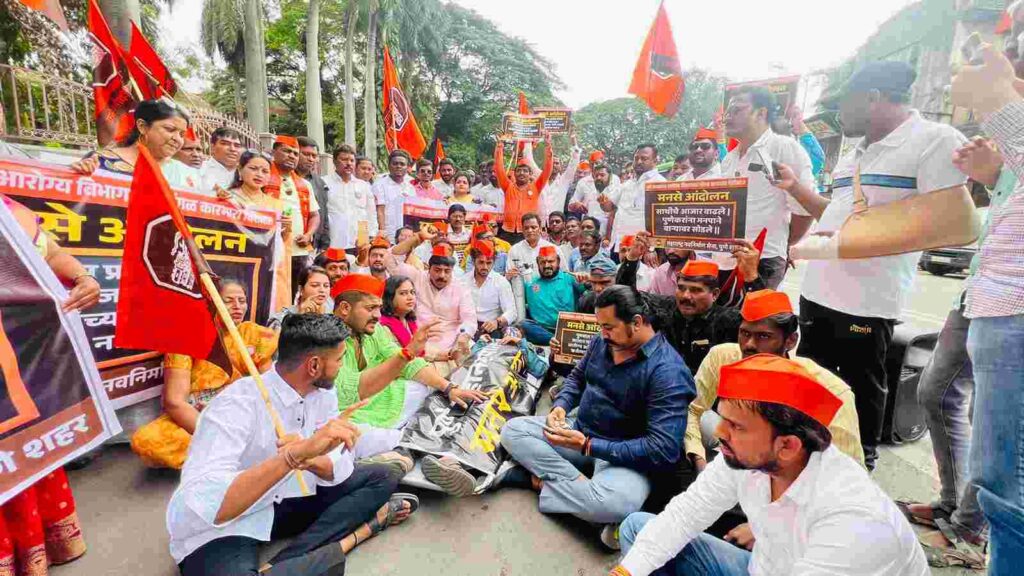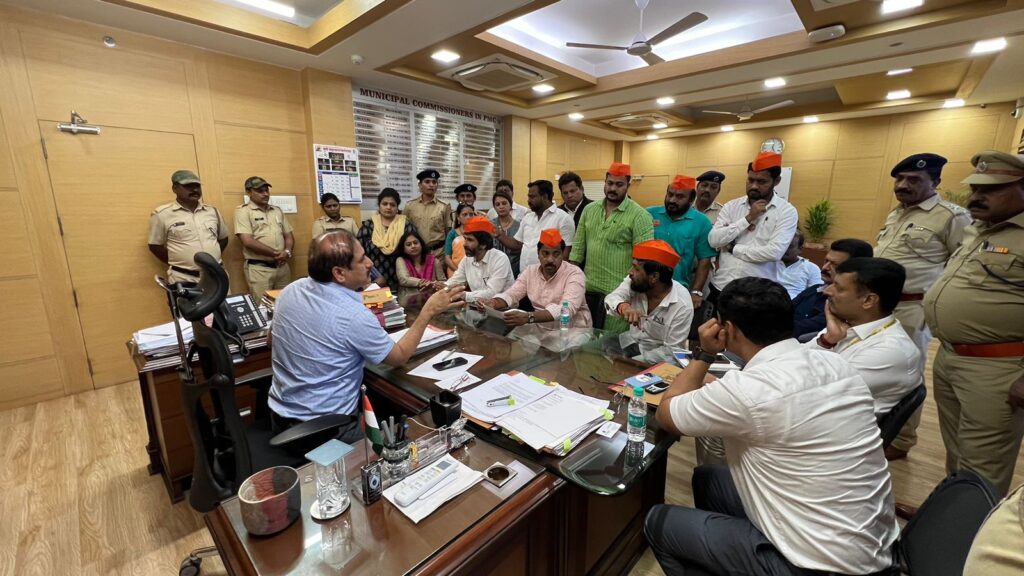MNS Stages Protest Against PMC Over Inaction On Soaring Vector Borne Diseases in Pune

PUNE: Amidst a surge in cases of vector-borne and other diseases in Pune, the Maharashtra Navnirman Sena (MNS) Party organized a robust demonstration outside the Pune Municipal Corporation (PMC) headquarters on Monday.
Sainath Babar, President of MNS Party Pune, revealed that the escalating impact of vector borne diseases has taken a toll on the health of Pune’s citizens. Despite PMC’s concerted efforts to avert disease outbreaks during the monsoon season, this year has witnessed a troubling increase in vector borne diseases, largely due to inadequate attention from the PMC’s health department.
While the administration’s initiatives have fallen short, a comprehensive approach involving public awareness and specialized guidance is imperative to tackle monsoon-related illnesses effectively. Regrettably, measures to curb mosquito breeding prior to, during, and after the monsoon have not been adequately implemented. Widespread growth of grass in the city has inadvertently provided breeding grounds for mosquitoes.
Pune’s inhabitants are grappling with a rise in mosquito-borne afflictions such as malaria, dengue, chickenpox, cold, and fever. Hospitals in Pune city are witnessing a notable upswing in patient numbers, particularly cases related to dengue, malaria, waterborne ailments, acute diarrhea, and diseases like cholera, jaundice, and eye infections. Even school students are experiencing a surge in eye problems, resulting in an increase in eye examinations and conjunctivitis cases across all Pune city hospitals.
Officials, doctors, and healthcare personnel of the Pune Municipal Corporation health department are facing persistent challenges. Several complaints have surfaced, highlighting the plight of women and their families who struggle daily due to insufficient hospital beds. Charitable organizations have contributed dialysis and X-ray machines to various PMC hospitals, but many of these vital testing instruments are inoperative, hindering proper treatment and leaving the economically disadvantaged population in perpetual distress.

Additionally, the Urban Poor Health Scheme implemented by the Pune Municipal Corporation has faced substantial criticism. Although the Urban Poor Yojana Hospitals were intended to provide cost-free care to patients in need, they have inadvertently caused psychological distress by demanding payment for services.
In response to these mounting concerns, a letter has been dispatched urging the Pune Municipal Corporation to swiftly implement measures to control the outbreak of epidemic diseases. While the city is facing a sluggish response, immediate steps must be taken to gather patient data from all Pune city hospitals and employ statistical models to bring epidemics under control. Prompt and dedicated treatment for each patient remains pivotal in addressing the severity of the situation.
Shreyas Vange









